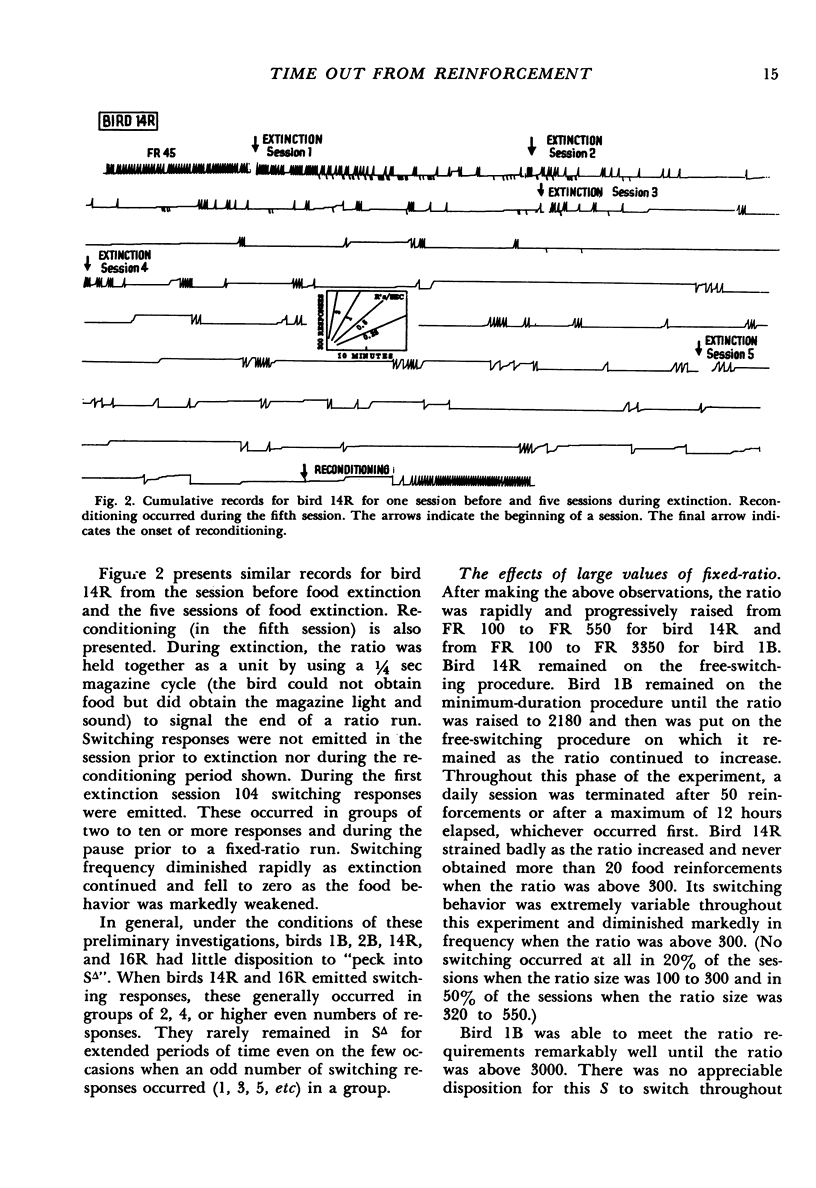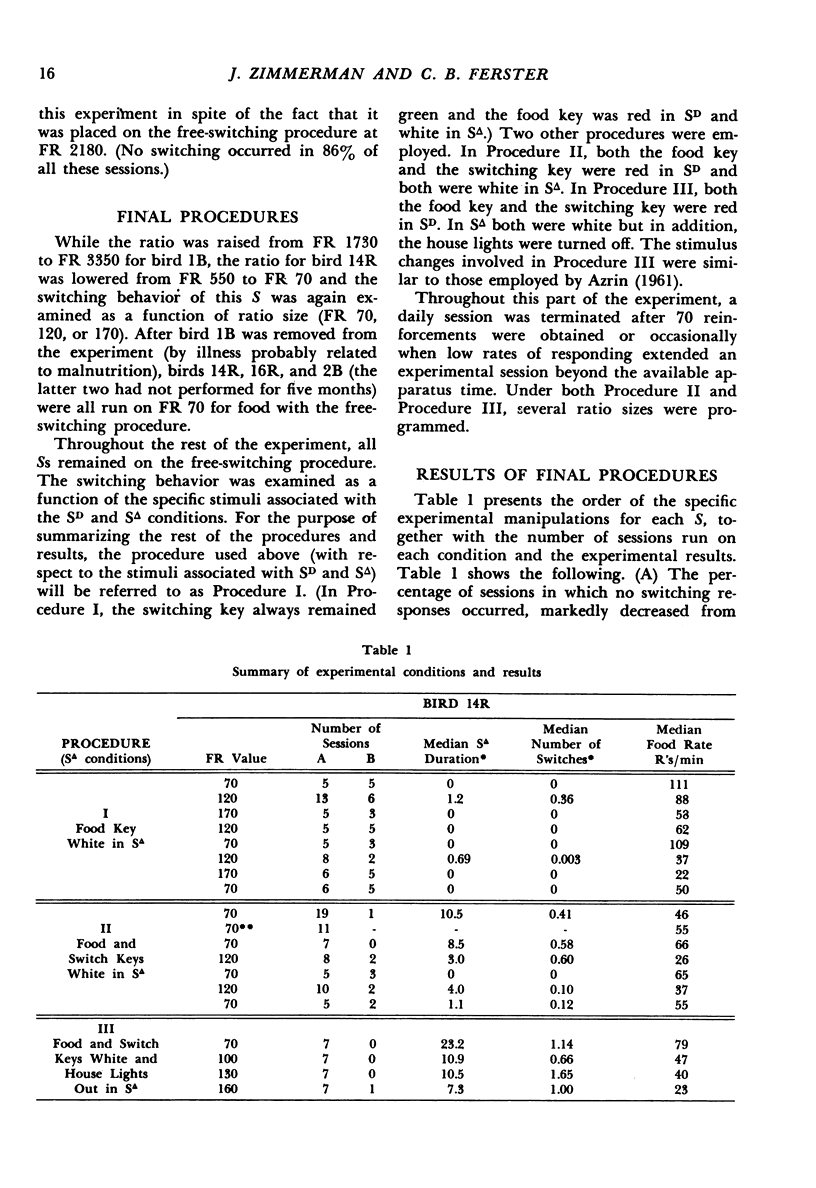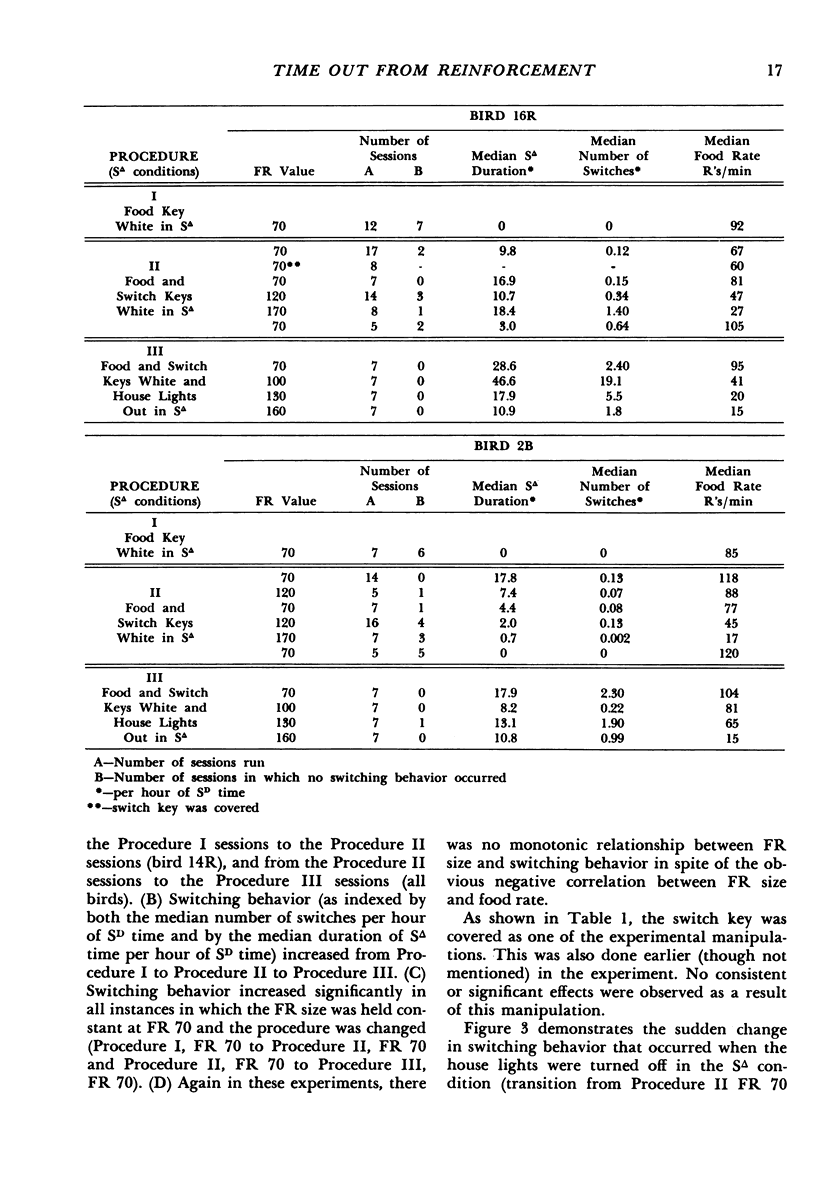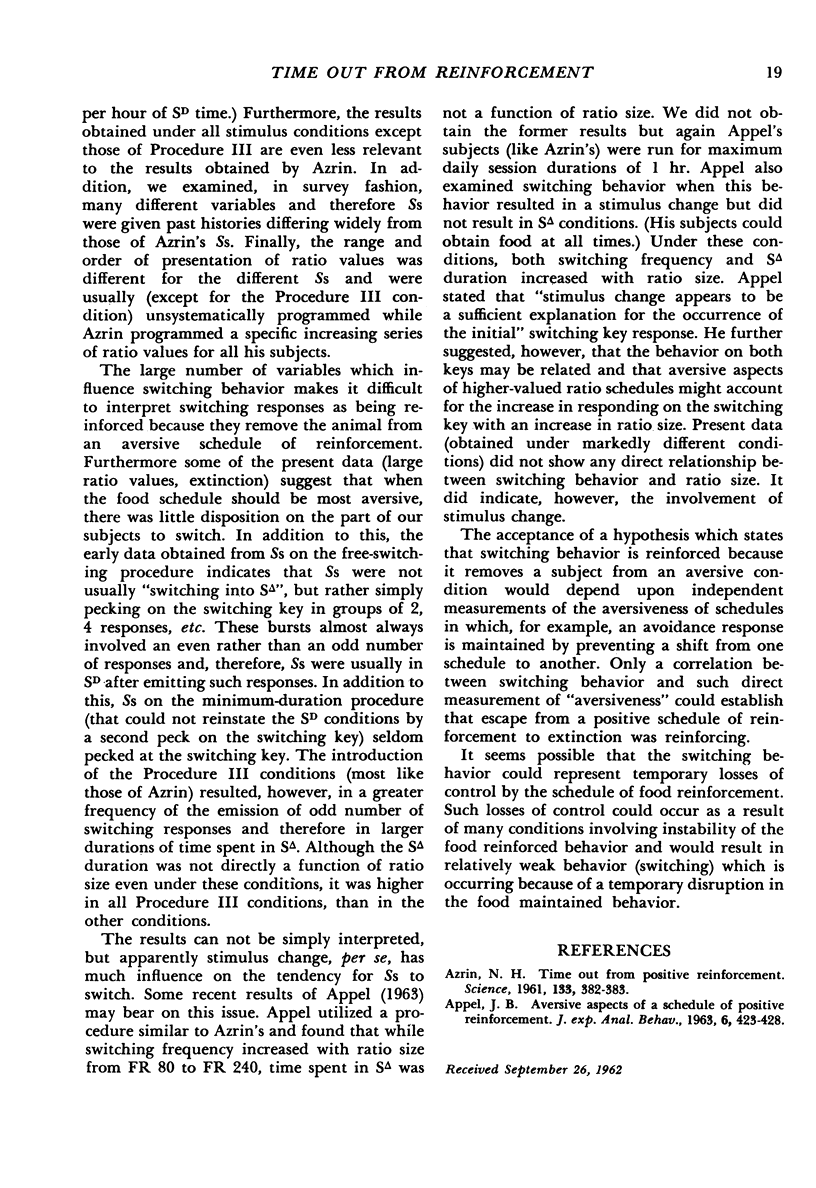Abstract
Pigeons produced food on a fixed-ratio schedule by pecking at one key, and an SΔ period by pecking at a second (switching) key. Switching behavior was examined as a function of (a) size of the fixed ratio, (b) whether the SΔ was of fixed duration or could be determined by the bird, (c) the introduction of a novel food SD, (d) extinction of food responding, and (e) the stimuli associated with the SD and SΔ conditions. No monotonic relationship was obtained between ratio size and switching behavior. Switching behavior was, however, influenced by many variables. The results suggest that an interpretation of switching behavior in terms of its being reinforced by the removal of aversive conditions, is open to considerable question.
Full text
PDF






Selected References
These references are in PubMed. This may not be the complete list of references from this article.
- APPEL J. B. Aversive aspects of a schedule of positive reinforcement. J Exp Anal Behav. 1963 Jul;6:423–428. doi: 10.1901/jeab.1963.6-423. [DOI] [PMC free article] [PubMed] [Google Scholar]
- AZRIN N. H. Time-out from positive reinforcement. Science. 1961 Feb 10;133(3450):382–383. doi: 10.1126/science.133.3450.382. [DOI] [PubMed] [Google Scholar]


